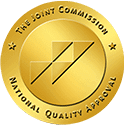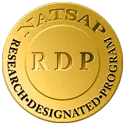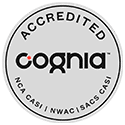
Understanding Agoraphobia and Its Connection to Anxiety
Agoraphobia is an anxiety disorder characterized by a persistent and overwhelming fear of being in situations or places where escape might be difficult, or help may not be available. This fear often centers on concerns about experiencing panic attacks or other incapacitating or embarrassing symptoms in public or unfamiliar settings.

Key characteristics of agoraphobia include:
- Fear of Certain Situations: People with agoraphobia may avoid specific places or scenarios, such as using public transportation, being in crowded areas, open spaces, or enclosed environments, due to the perception that escape would be difficult or help inaccessible.
- Avoidance Behavior: To manage their fear, individuals often avoid these triggering situations entirely or require the presence of a trusted companion. In severe cases, avoidance can lead to being housebound and significantly restrict daily life.
- Underlying Anxiety: At its core, agoraphobia stems from anxiety that is out of proportion to the actual danger. This anxiety often includes fears of losing control, experiencing physical incapacitation, or being unable to escape a situation.
- Co-occurring Conditions: Agoraphobia frequently overlaps with other anxiety-related disorders, such as generalized anxiety, panic disorder, or depression. Agoraphobia can greatly disrupt daily functioning, limiting one’s ability to work, maintain relationships, or participate in social activities. Without proper intervention, it can lead to complications like depression, substance misuse, or even suicidal thoughts. Recognizing the condition and seeking appropriate treatment for agoraphobia is essential to improve quality of life.
Signs and Symptoms of Agoraphobia
Agoraphobia in teens is characterized by a persistent fear of situations where escape might be difficult or help unavailable. While experiences vary, common patterns include:
Key Symptoms
- Fear of Specific Situations: Teens may fear public transportation, open or enclosed spaces, crowds, or being outside alone, driven by the belief that they cannot escape or get help.
- Avoidance Behavior: Teens often avoid triggering situations, insist on a companion, or, in severe cases, refuse to leave home, disrupting daily life.
- Panic Attacks: Sudden episodes of intense fear with physical symptoms like a racing heart, dizziness, or nausea. Fear of future attacks reinforces avoidance but isn’t universal.
- Physical Symptoms: Anxiety-related symptoms such as dizziness, fainting, or upset stomachs may add to fears about being unable to escape or get help.
- Emotional and Behavioral Signs: Teens may express a desperate need to stay home, avoid certain routes, or display unusual behaviors tied to their fears.
- Disproportionate Fear: Their anxiety is often much greater than the actual danger.
Agoraphobia causes significant distress and functional impairment, making it hard for teens to attend school or engage socially. Symptoms must last at least six months for a diagnosis.
Additional Considerations
- Misdiagnosis: Agoraphobia can be mistaken for separation or social anxiety. A professional evaluation is key to accurate diagnosis.
- Co-occurring Conditions: Many teens also experience other anxiety or panic disorders.
Agoraphobia manifests as intense fear, avoidance, and distress tied to anxiety. Professional evaluation and support are essential if symptoms persist for six months or more and cause significant disruption to daily life. Recognizing the signs early can help parents intervene effectively and support their teen in managing this challenging condition.
Treatment for Agoraphobia and Anxiety Options
Treatment typically combines therapy and, when needed, medication to help teens confront their fears, reduce anxiety, and improve daily functioning.
Therapy
- Cognitive Behavioral Therapy (CBT):
- Exposure Therapy: Teens gradually face feared situations in a safe, controlled environment, starting with less anxiety-provoking situations. This helps reduce anxiety over time.
- Anxiety Management: CBT teaches relaxation exercises and visualization techniques to manage anxiety.
- Interoceptive Exposure:
- Used for teens with panic attacks, this technique induces physical symptoms of panic (e.g., racing heart) to show they are not dangerous. Techniques like running stairs or using a space heater are common, along with deep breathing exercises.
Medication
- SSRIs (Selective Serotonin Reuptake Inhibitors): For more severe cases, SSRIs may be prescribed to reduce anxiety, helping teens engage in therapy. Medication is typically used alongside therapy, not alone.
Important Considerations
- Individualized Treatment: Treatment is tailored to each teen’s needs, starting with manageable steps.
- Co-occurring Conditions: Many teens with agoraphobia also have other anxiety or panic disorders, which should be addressed in treatment for agoraphobia.
- Family Involvement: Family support is important for success.
- Early Intervention: Early treatment for agoraphobia helps prevent worsening symptoms.
Is it normal teenage behavior or is it something else? These assessments may help you know how much your teen's and family's life are being affected by anxiety.
How Can Treatment For Agoraphobia Help Your Teen?
Specialized and Evidence-Based Therapy
Teens at WayPoint Academy receive personalized therapy tailored to their specific anxiety needs, including effective treatment for agoraphobia. Through a combination of evidence-based approaches like Cognitive Behavioral Therapy (CBT), Exposure and Response Prevention (ERP) therapy, and the Mindful Completion Model, teens learn strategies to manage and overcome their anxiety. ERP therapy, a key part of the program, is widely recognized as the gold standard for treating obsessive-compulsive disorder (OCD) and severe anxiety. This therapy has shown a 60-80% success rate, offering teens powerful tools to confront their fears in a supportive environment. At WayPoint, teens are guided by certified therapists who specialize in ERP, ensuring they receive the focused, targeted care needed to address their anxiety and agoraphobia.
Comprehensive and Personalized Approach
Teens at WayPoint Academy receive a holistic treatment approach that integrates therapy with academics, life skills, physical fitness, and recreational activities, all tailored to meet their individual needs. This comprehensive support helps reinforce newly learned skills throughout daily life, promoting long-term growth and stability. Teens engage in the Mindful Completion Model, which teaches them to replace avoidance behaviors with purposeful action. In doing so, they build coping skills, gain confidence, and develop a greater sense of independence. The integration of therapy with daily experiences ensures that teens at WayPoint are continuously supported in their journey toward healing and personal growth.
Supportive Residential Setting with Real-World Application
Teens at WayPoint Academy receive a safe, structured environment that allows them to focus fully on their recovery without the distractions of everyday life. For teens with agoraphobia, this setting offers a chance to face the challenges of daily life in a supportive space, helping to break the cycle of avoidance. They practice real-world exposure, such as visiting crowded places to apply relaxation techniques with their therapist. This hands-on approach ensures that teens develop the coping skills they need to manage anxiety in real-life situations. By practicing these skills in a controlled environment, teens at WayPoint are better prepared to successfully transition back to their home, school, and community, supporting long-term success in managing their anxiety.
To get started, call 435-562-5800 or email [email protected]. We're here to listen, answer your questions, and provide the support your family deserves.

Backed by The Joint Commission which ensures programs adhere to the highest quality of clinical and medical practices.

Designated as a NATSAP Research Program, showing our commitment to well-researched practices in our program.

Full member of the National Association of Therapeutic Schools and Programs (NATSAP), which ensures regulation of programs that serve children and adolescents.

This program is proud to be Cognia Accredited. Cognia provides accreditation to schools that have earned recognition for their reputation and high educational standards.

WayPoint Academy is fully licensed in the state of Utah.

Waypoint Academy is a certified Student and Exchange Visitor Program (SEVP), allowing us to welcome and support international students.

Full Member of the International OCD Foundation, which ensures our staff has access to the most up-to-date OCD treatment practices and research.

Founding member of Choose Mental Health, guiding families with questions about mental health.

